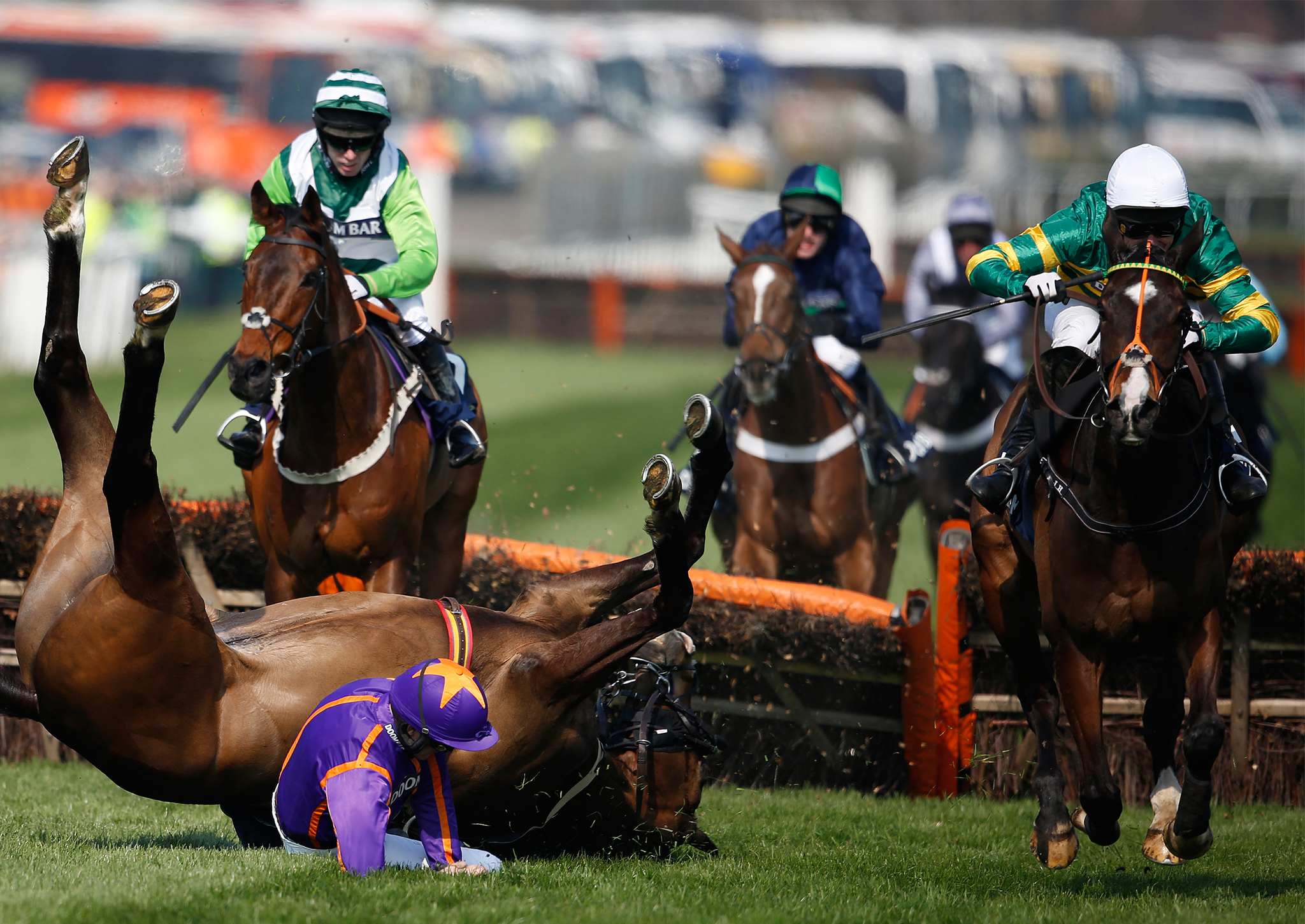Grand National 2015: How grand can a race be when some horses snap or die before finishing?
I can't understand how anyone can tolerate such a horrific event


Your support helps us to tell the story
From reproductive rights to climate change to Big Tech, The Independent is on the ground when the story is developing. Whether it's investigating the financials of Elon Musk's pro-Trump PAC or producing our latest documentary, 'The A Word', which shines a light on the American women fighting for reproductive rights, we know how important it is to parse out the facts from the messaging.
At such a critical moment in US history, we need reporters on the ground. Your donation allows us to keep sending journalists to speak to both sides of the story.
The Independent is trusted by Americans across the entire political spectrum. And unlike many other quality news outlets, we choose not to lock Americans out of our reporting and analysis with paywalls. We believe quality journalism should be available to everyone, paid for by those who can afford it.
Your support makes all the difference.We fancy ourselves a civilised nation. But when droves come out to cheer and applaud as horses crash face-first into the ground, break their necks and legs and die on the Grand National track, how is it any different from the barbaric days of the gladiators?
Horses aren't machines. They're smart, sensitive, often skittish animals. When 40 horses are forced to run side by side at breakneck speed on a nearly 4.5-mile obstacle course, it's a disaster waiting to happen.
The Grand National is treacherous. Horses frequently sustain catastrophic injuries – and many have even died. They face 16 fences, 14 of which they're forced to jump over twice. These fences are larger than those found at other British racetracks, both in height and width – and many have ditches on either side that are wider and deeper than what most horses are able to jump. The deadliest jump on the course, Becher's Brook, is often called the “killer fence”.
Last year, only 18 horses finished the race – fewer than half the number that started. Some of them collapse from exhaustion, while others simply stop racing, unable to go on. Multiple horses running at top speeds frequently approach jumps at the same time, causing chaos, confusion and crashes. Adding to the horses' fear and anxiety, riders are also required to carry a whip, which they regularly crack.
Participants are blithely dismissive of the carnage. One of the UK's top female jockeys, Katie Walsh, said in an interview in 2013, “I hope to God there are no accidents this year but these things happen, and they're horses at the end of the day”. The media also turn a blind eye to the toll that the Grand National takes on horses. In 2011 one BBC commentator referred to the body of a dead horse on the track as “an obstacle”.
Many horses used for racing are young, and their bones are still underdeveloped when they begin to race and jump, so it's no wonder that so many sustain serious – and sometimes fatal – injuries. Countless others go lame. It's standard industry practice to give horses drugs to mask pain and keep them running when they should be resting or receiving treatment.
What's more, the carnage doesn't end on the track. According to the charity Animal Aid, approximately 12,000 foals are born every year into the British and Irish racing industries. And only half (or fewer) eventually set foot on a track.
As another Grand National passes, we should ask ourselves how much longer we're willing to tolerate the biggest event on the horse racing calendar. In many ways, Katie Walsh was right: at the end of the day, they are just horses: real, living animals who feel pain. And that's why we can't continue to condone such a despicable events that play Russian roulette with their lives.
Join our commenting forum
Join thought-provoking conversations, follow other Independent readers and see their replies
Comments